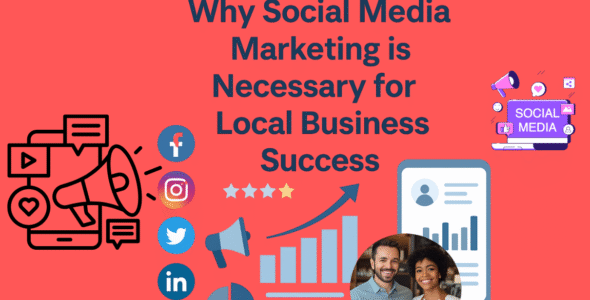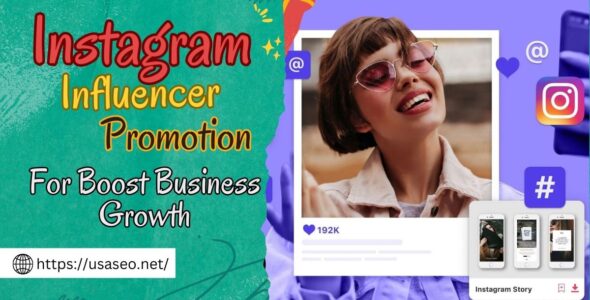In today’s competitive digital marketplace, firms must choose how to effectively deploy marketing resources and efforts. Two of the most popular strategies, Search Engine Optimization (SEO) and Facebook Marketing offer distinct benefits for firms, but they are regularly compared to determine which will give the most results.
Understanding the distinctions between these two tactics, their strengths, and the potential influence on your company’s development is critical for making an educated selection. In this post, we will look at the advantages of both SEO and Facebook marketing, how both may help your company succeed, and which technique is most suited to your unique objectives.
What is SEO?
The practice of improving your website’s visibility on search engines like Google, Bing, and Yahoo is known as search engine optimization or SEO. The objective is to increase organic (non-paid) traffic by ranking higher on search engine results pages (SERPs). SEO entails a variety of strategies, including keyword research, which allows you to find and target relevant search phrases used by your target audience. You then use these keywords in your content, Meta descriptions, and page names. On-page SEO focuses on optimizing individual pages so that they are user-friendly and include relevant information.
Off-page SEO includes tactics for increasing the site’s authority, such as acquiring backlinks from credible websites. Technical SEO guarantees that your website is optimized for performance, speed, mobile usability, and security. Finally, local SEO enables firms to rank better in location-based searches, increasing exposure within certain areas. SEO is a long-term plan that, when done correctly, results in consistent, organic traffic and an improved online presence.
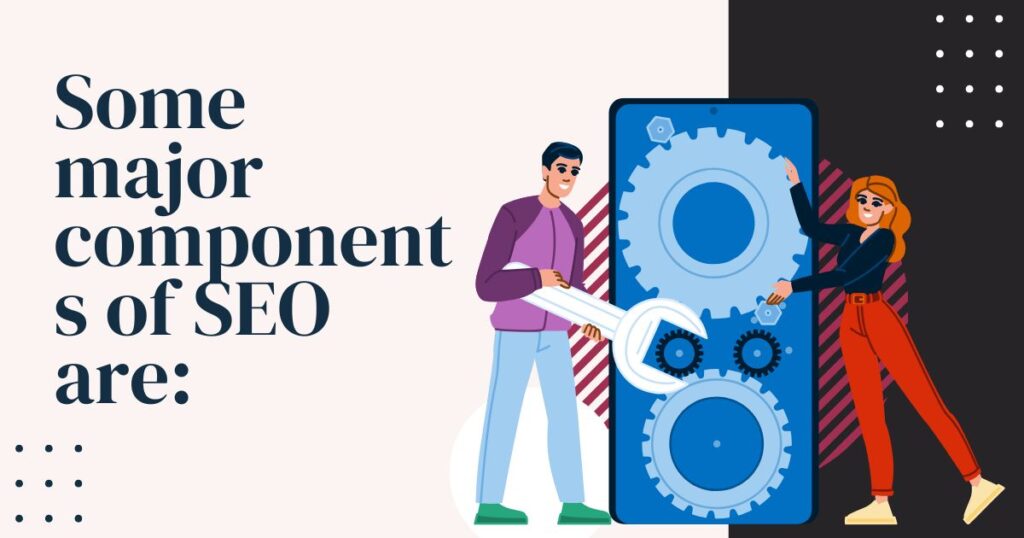
Some major components of SEO are:
- On-page SEO: Includes optimizing individual web pages with keywords, producing high-quality content, optimizing title tags and Meta descriptions, and enhancing site navigation.
- Off-page SEO: Includes obtaining backlinks from other websites, social media mentions, and enhancing company recognition online.
- Technical SEO: Improving the technical components of your website, such as increasing page speed, assuring mobile optimization, and resolving crawl issues.
Local SEO Increasing exposure in local search results by claiming and improving your Google My Business page.
SEO is a long-term approach that, when done effectively, may provide consistent organic traffic. To keep your website optimized and competitive, you must make continual efforts and provide frequent updates.
What is Facebook Marketing?
Facebook marketing relates to making use of Facebook’s platform to promote goods, services, or brands to a specific audience. It involves both organic tactics, such as putting content on a company page, communicating with followers, and sharing updates, as well as paid advertising choices. With Facebook’s advertising capabilities, companies can build sponsored posts, carousel advertisements, video ads, and more to target particular audiences based on demographics, interests, and behaviors.
This tailored strategy helps organizations to successfully communicate with prospective consumers, boost traffic, and enhance conversions. Facebook marketing is particularly beneficial for brand exposure since it provides direct engagement with people via comments, likes, and shares. Additionally, companies may evaluate ad success using analytics and change campaigns in real time. Whether via organic postings or sponsored initiatives, Facebook marketing helps companies expand their online presence and engage with their audience.
Facebook provides several advertising possibilities, including:
- Sponsored Posts: These are standard posts that show in users’ newsfeeds but get paid marketing to reach a larger audience.
- Carousel Ads: These ads enable you to display numerous photos or videos in a single post.
- Video advert: Short video adverts that play automatically on users’ feeds.
- Lead Ads: A kind of ad in which consumers may input their contact information directly via Facebook.
In addition to paid advertising, companies may use Facebook for organic marketing by establishing a company page, publishing content, connecting with followers, and joining Facebook groups related to their industry.
SEO and Facebook Marketing Key Differences
While both SEO and Facebook marketing strive to generate visitors and enhance conversions, they are essentially different tactics, each with distinct advantages. Let’s look at the significant differences
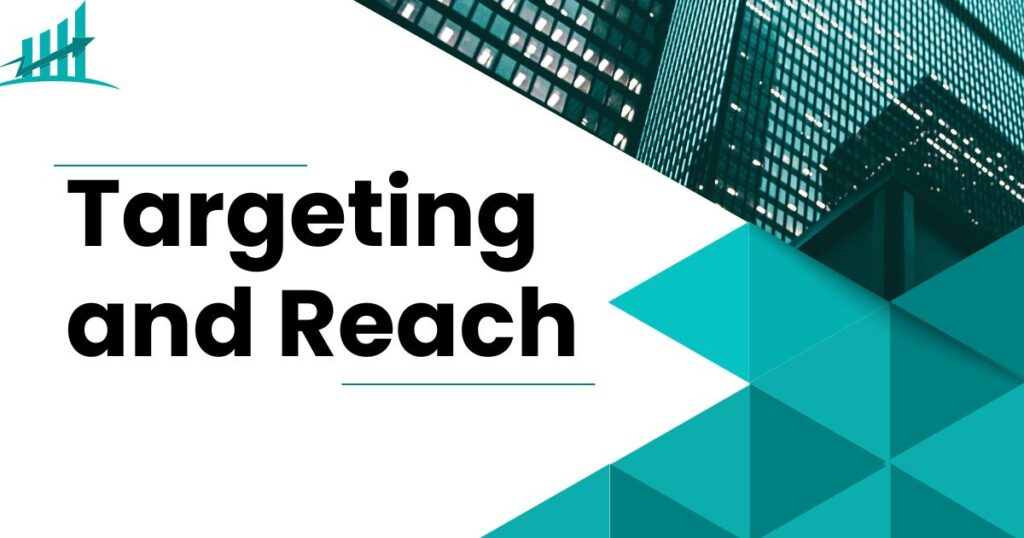
1. Targeting and Reach.
One of the most significant contrasts between SEO and Facebook marketing is targeting. SEO helps you to target visitors who are actively looking for information, goods, or services related to your brand. SEO allows your material to appear in search results when a user enters a query relevant to your industry. This sort of targeting is intent-driven, which means the user is already interested in what you’re offering.
Facebook marketing, on the other hand, enables more specific demographic targeting. You may target consumers based on their age, gender, geography, hobbies, online activity, and other factors. Facebook advertisements allow you to reach a larger audience, even individuals who may not be actively seeking your product or service at the time. It’s the process of creating curiosity about the products you sell via demand-side advertising.
2. Cost
Over time, SEO is often less costly than Facebook advertising. You’ve optimized your website and built high-quality backlinks; SEO traffic is free. However, SEO requires continual efforts to maintain and enhance ranks, such as frequent content changes, technological upgrades, and back linking tactics.
In contrast, Facebook marketing requires an advertising expenditure. Costs vary based on your sector, target demographic, and the competition of the keywords you’re targeting. Facebook advertising may be more costly in the short term, but it provides quick exposure and results. If you want to swiftly grow your efforts, Facebook advertising is an effective strategy; however, they do demand continual expenditure.
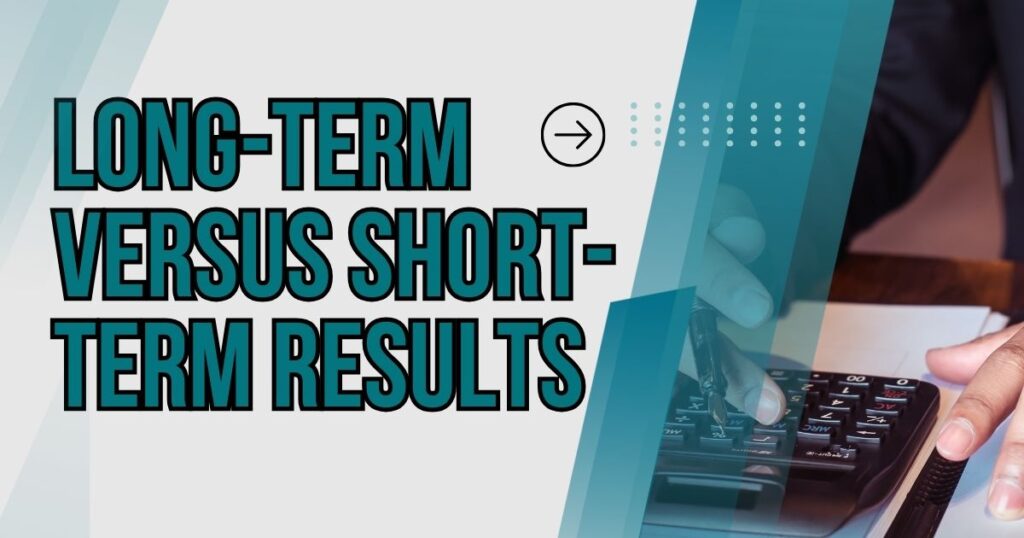
3. Long-Term Versus Short-Term Results
Search engine optimization is an ongoing plan that takes time to pay off. It might take months to see major traffic growth and improved ranks in search engine results pages. However, if you get high ranks, traffic is often continuous, making it simpler to retain those places over time.
Facebook marketing, on the other hand, generates rapid results. When you create a Facebook ad campaign, you may see clicks, impressions, and conversions virtually immediately. However, Facebook advertising ceases producing visitors as soon as you turn off the ad expenditure, which means you must continue to invest in marketing to be visible.
4. Brand awareness and engagement.
Facebook marketing increases brand exposure and fosters interaction with your target demographic. With the capacity to submit multimedia material (such as videos, photographs, and tales), companies may connect with consumers in a more visual and participatory manner than SEO. Facebook lets you communicate directly with prospective consumers by leaving comments, sending direct messages, or engaging with the material you publish.
While SEO may enhance traffic and awareness, it cannot match Facebook’s degree of engagement and participation. SEO focuses on visitors discovering your website via search queries rather than creating personal relationships.
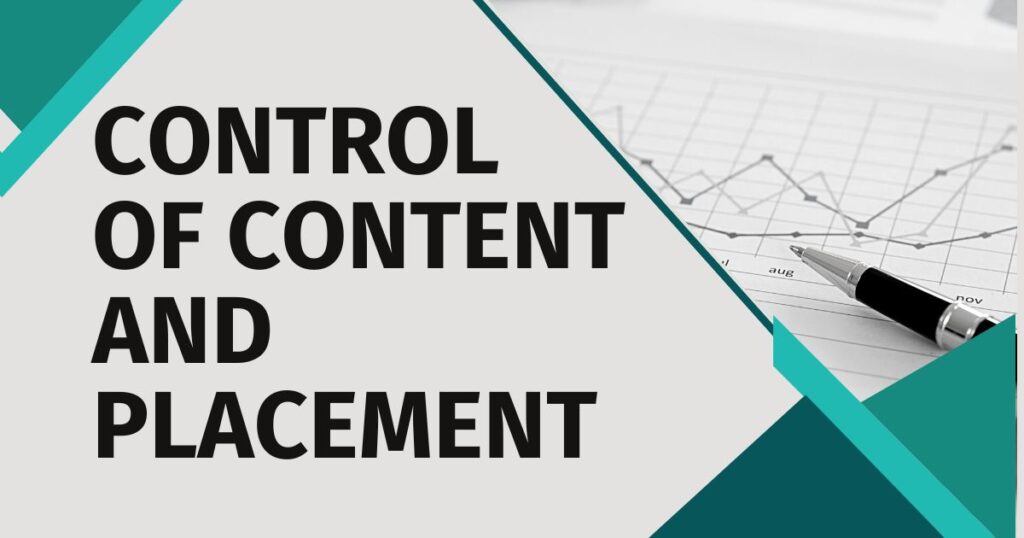
5. Control of Content and Placement
With Facebook Marketing, you have complete control over the content and placement of your advertising. You may create advertisements, choose your target demographic, and specify when and where they will show. This provides you with a lot of freedom and enables you to experiment with various ad forms, messages, and creatives.
However, SEO provides you with less control over where your material appears. While you may optimize your website for search engines and target certain keywords, Google and other search engines will ultimately decide where your material appears. This implies that SEO results are impacted by elements outside your direct control, such as competition, search algorithms, and your website’s authority.
Which Strategy Is Best for Your Business
The selection between SEO and Facebook marketing is based on your company’s objectives, money, and timetable. Here’s an overview of which method would be ideal for you
Select SEO if
- The objective is to raise the volume of steady, for a long time visitors.
- Your target audience is likely to look for your goods or services online.
- You have the patience and resources to commit to a long-term SEO plan.
- You seek organic, cost-effective traffic with little continuous ad expenditure.
- Your company has a solid content marketing strategy that may benefit from optimization.
Select Facebook Marketing if:
- You should notice quick effects and traffic.
- You’d want to use demographic and behavioral data to target a very narrow audience.
- You have a budget for sponsored advertisements and want to expand rapidly.
- Brand recognition and engagement are critical for any business, particularly if your product or service is visually or emotionally appealing.
- You want to test multiple marketing methods quickly to see what connects with your target demographic.

Conclusion
Both SEO and Facebook marketing are effective tactics for expanding your brand, but they perform different functions and provide distinct rewards. SEO is better for long-term, organic development and establishing your website as an industry authority, but Facebook marketing is excellent for gaining rapid exposure, driving conversions, and increasing brand recognition via targeted advertisements. In many circumstances, combining both tactics yields the best results.
Businesses may achieve long-term success by combining the benefits of SEO for organic traffic with Facebook marketing for sponsored exposure and engagement. Finally, the decision between SEO and Facebook marketing should be based on your company’s objectives, available resources, and target demographic. Understanding the benefits and limits of each approach allows you to determine the best route for maximizing your marketing efforts in 2025 and beyond.
 My Account
My Account 
